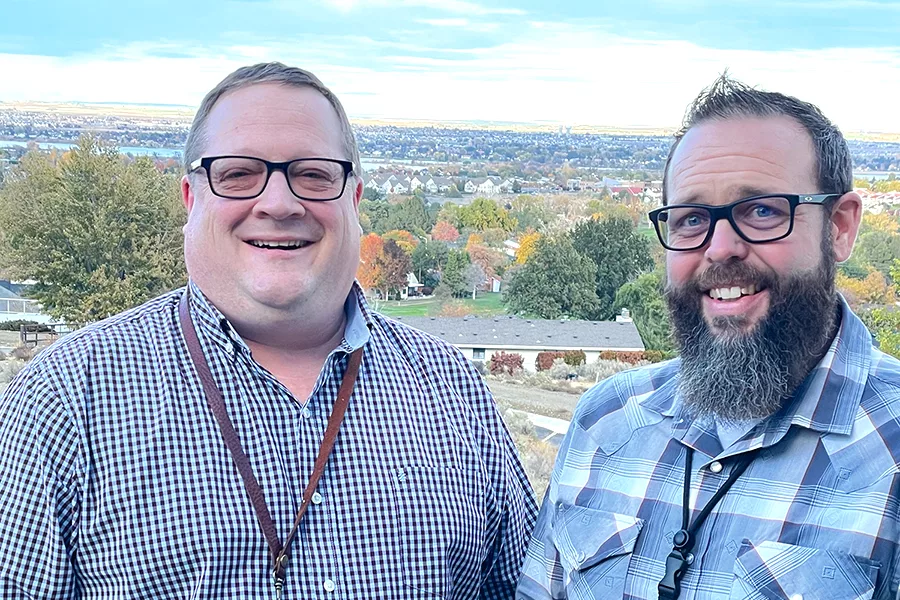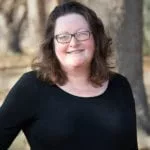
Home » Veterans Court is changing lives in Benton County. Will Franklin follow?
Veterans Court is changing lives in Benton County. Will Franklin follow?

November 15, 2021
Judge Dan Kathren expected miracles in 2019, when Benton County launched a special court to help veterans charged with crimes turn their lives around.
Forty veterans and 20 graduates later, he has not been disappointed.
“It’s absolutely doing what we were hoping it would,” said Kathren, a seasoned Benton County District Court judge who oversees cases involving military veterans charged with driving under the influence, assault and other crimes.
Participants have their cases diverted to therapy court in exchange for stipulating to the charges and agreeing to enter therapy and be mentored by fellow veterans.
Qualifying veterans regularly appear in court and meet with case workers – weekly at first, then every two weeks, then three and finally four. It takes at least a year and sometimes far longer to graduate.
Along the way, participants meet with mentors from Columbia Basin Veterans Center and are signed up for VA (Veterans Affairs) benefits if they’re eligible.
If they aren’t eligible because they weren’t honorably discharged, the program helps them tap into non-VA services.
The idea is to address the underlying issues that land some veterans in court to start with – post traumatic stress disorder, brain injuries, military sexual assault and more.
Kathren described stunning outcomes, even among participants with decades of criminal experience. He said the recidivism rate is about 5%, a small fraction of the number of defendants who return with new charges in traditional courts.
“What we’re really seeing, and what gives us confidence, is seeing people transforming their lives, coming into the program one way and leaving as a completely different person,” he said.
“We’ve seen some people nobody ever expected to change make just massive changes and completely turn their lives around. We’ve seen it multiple times in the 40 people we’ve had in this program so far. It’s really incredible and it’s really obvious it’s working.”
Modeled on a similar court in Spokane, the goal is to support veterans through the court process, to help them avoid losing jobs and homes. Most are charged with misdemeanors though the court has accepted some felony cases.
To date, it has handled driving under the influence, assault and some theft cases. It handles possession cases and although many defendants are eligible to have the charges dismissed thanks to a recent Supreme Court ruling, participants opted to keep pursuing the Veterans Court program – a point of pride for both Kathren and Ryan Washburn, a Navy veteran and case manager.
Veterans Court is a cousin to the therapeutic courts that hear drug and mental health-related cases in Benton Franklin Superior Court. Like Veterans Court, they aim to treat the root causes of crime with therapy and accountability.
While Drug Court and Mental Health Court are available to eligible offenders in both counties thanks to the bi-county Superior Court system, Veterans Court is limited to Benton County defendants.
It is housed in District Court rather than the bi-county Superior Court. Funding comes from Benton County’s voter-approved public safety sales tax, which supports law enforcement and crime-fighting activities.
Franklin County did not participate when it started up. That could be changing.
Benton County agreed to accept a Franklin County case at the request of the Franklin County Prosecutor Shawn Sant. Sant felt a defendant would benefit from the therapeutic approach and reached across the river to see if something could be worked out.
If it succeeds, Sant hopes it could lead to bringing Veterans Court to Franklin County.
“I hope this will be able to operate in a longer-term fashion as we gain qualifying participants and interest. We are requesting funding for the one slot now and hopefully will develop a long-term option for Franklin County participants. I fully support this court and have attended a few evening meetings with the Benton County Veterans Court and see it serving our veterans,” he said.
The Benton County Commission agreed to the one-time Franklin case, if Franklin foots the $10,000 estimated cost to process it, at one of its weekly business meetings in October.
Kathren, together with Ryan Washburn, case manager, shares Sant’s interest in bringing Veterans Court to Franklin County.
“We jumped on the opportunity. We want to see Franklin County in the program,” Kathren said. If Franklin County doesn’t have enough eligible defendants to support an independent court, the judge said he’d like to see them in Benton County if the details can be worked out.
“I’m very optimistic about Franklin County continuing one way or the other.”
The defendant has been accepted to the program but hadn’t made a court appearance while the two counties sort out the administrative details.
Washburn said pairing Veterans Court participants with mentors who are also veterans is the key to the success.
“That’s what sets us apart,” he said, adding that a veteran mentor is a friend who is unaffiliated with the court. There’s a natural affiliation among veterans, regardless of age or what branch of the service they belonged to.
“I feel we’re hugely successful because of that connection we have.”
Tom Mattis, mentor coordinator for the Columbia Basin Veterans Center, invites honorably discharged veterans who are interested in serving fellow veterans to volunteer.
“Mentors find that the rewards of helping their veterans get their lives back on track and graduate from the court are immensely satisfying. Mentors are male and female veterans from all branches, are of all ages and served in every conflict from Vietnam to the present, united by the common bond of continued service to others,” he said.
Contact Mattis at [email protected].
Local News
KEYWORDS november 2021





